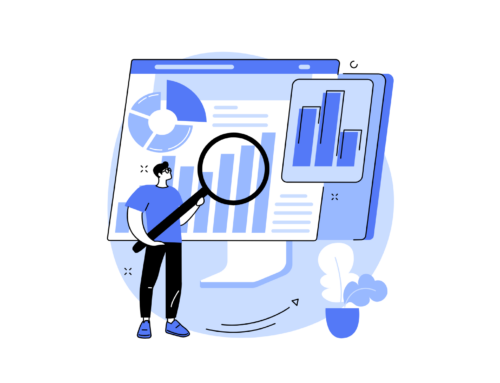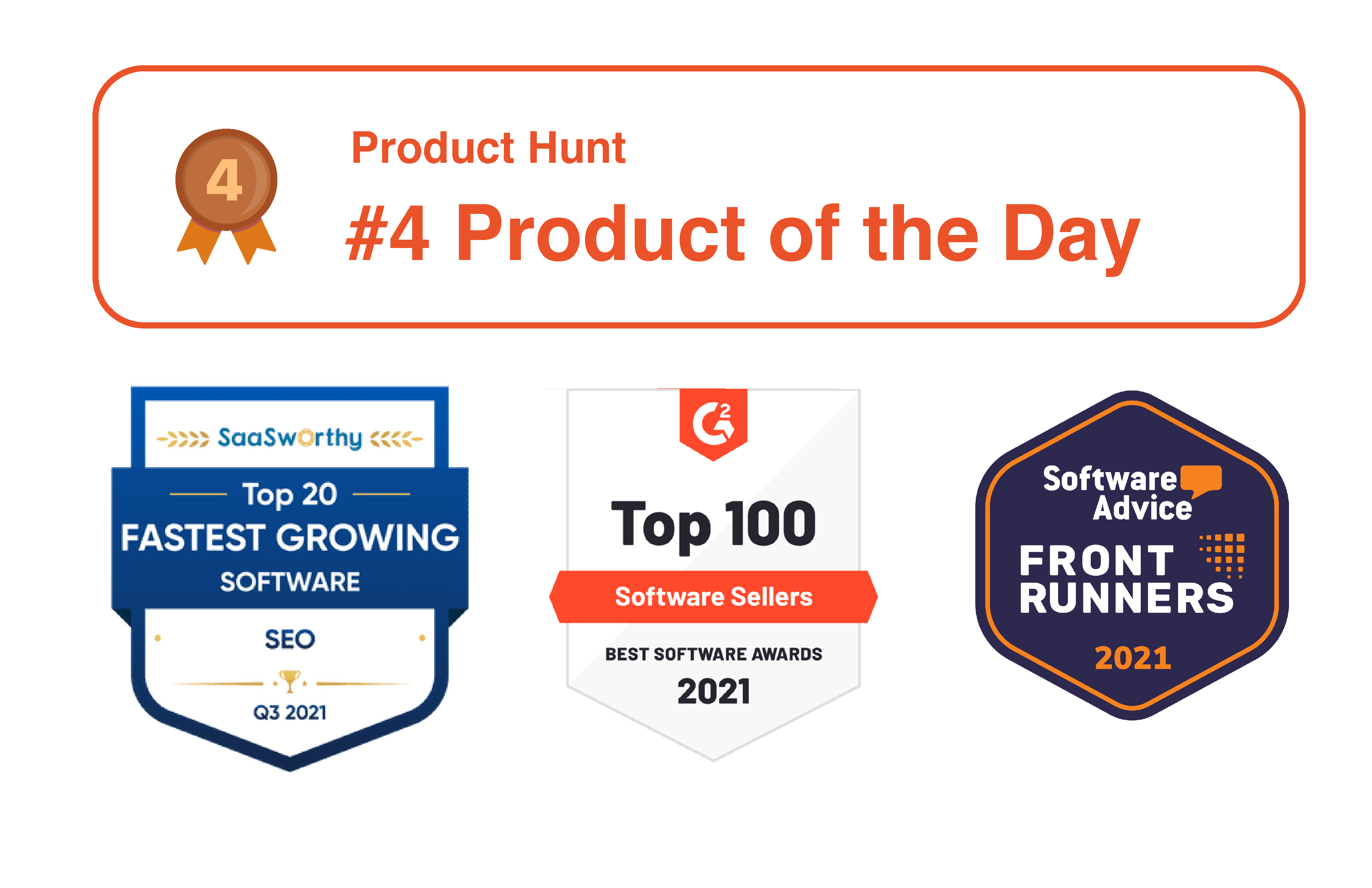SEO is a long-term game.
And the only way to sustain it for your business is by having a proper performance tracking process in place.
Many people overlook this part, and most of the time, they fail to make it a sustainable part of their business.
Key performance indicators, also known as KPIs, are the most important metrics that will help you measure and evaluate the performance of your SEO campaigns.
Especially if you have a client to report, KPIs will help you a lot to show your clients the progress of your work.
But the main question is:
What KPIs to track for SEO?
That’s what we’re going to find out today.
In this post, we’re going to show you the 9 SEO KPIs that you should start tracking to measure and improve your SEO performance.
Let’s jump in.
Table of Contents
9 SEO KPIs That You Should Be Tracking
1. Keyword Ranking
Keyword ranking is the most important and crucial SEO KPI that you have to track from the day you start your SEO campaigns.
In SEO, it doesn’t matter what you do; everything boils down to keyword ranking.
And if your website has a good keyword ranking position, it clearly shows that your SEO campaigns are working really great.
Keyword ranking has a direct relation with anything you do in SEO.
The higher your website ranks for a particular keyword, the more traffic your website will get, and eventually, that traffic will translate into customers for your business.
In short:
It’s the most crucial indicator of the progress of your SEO strategy.
However, you don’t have to track every single keyword ranking of your time because you might be overwhelmed and lose your focus.
So the better option is to pick a few keywords that serve the highest value for your business and track those regularly.
But again, one question that comes up here is: how to actually track the keywords?
While it’s basically impossible to track keyword rankings manually if you have a mid or huge website with lots of pages, you can use keyword rank tracking software that will track down all of your keywords automatically.
The best option for that is none other than the Zutrix rank tracker.
Zutrix is a rank tracking suite that helps you to track keywords super efficiently from one single dashboard.
It also with a great reporting system, keyword ranking changes alert, competitor tracking system, geo-based keyword ranking, and lots of other exciting features.
2. Organic Traffic / Users
Doesn’t matter what we do, after all, most of the time our top of the funnel goal is to attract more visitors to our website.
That’s a goal that almost most businesses have with SEO.
Organic traffic growth is the key performance indicator that you have to look for if you want to measure the actual progress of your SEO strategies.
Mainly, you have to analyze how many visitors and users your website is getting on a daily, weekly, monthly, or yearly basis (whichever you prefer).
You simply look into your Google Analytics data to see how many users your website is getting.
Head over to Google Analytics and then go to Audience > Overview.
And here you can clearly see how many visitors and new users your website is getting.
You can even change the time and compare the data with a specific time frame.
3. Search Impression
Another SEO KPI that is equally important for SEO growth is search impressions.
Search impression basically means how many people are seeing your website or a web page in the search results.
It’s extremely important to measure this metric because you’ll have an idea of whether your website is performing on the search results or not.
Although search impressions do not directly define the effectiveness of your SEO campaign, you’ll still know whether your website is showing continuous SEO growth or not.
To know how many search impressions your website or specific pieces of content are getting, head over to the Google search console and click on “performance.”

If you scroll down a bit then you can also see how many impressions each keyword is bringing in.

4. CTR (Click Through Rate)
CTR (Click through rate) basically means how many people clicked on your search result out of the total number of people who say it.
The difference between search impressions and website traffic is a simple click.
Measuring search impressions is obviously essential.
But at the same time, what’s the point of having thousands of search impressions if no one clicks on that?
Along with measuring the search impression, we also have to calculate the CTR score of our website or separate web pages.
Just like CTR is a crucial metric to measure the effectiveness of email, PPC, and social media ad campaigns, it’s also crucial in SEO.
But why actually it’s essential?
It’s important because it can make or break your SEO.
For example, if your search results get significantly lower CTR (Click-through rate), Google will automatically bring it down in the search results because they might feel that it’s not relevant to the users.
That simply calls user signal and plays a massive role in SEO.
But how do you find out the CTR of your pages?
And how are you even going to improve it?
Don’t worry; we have the answers to both of these questions.
For finding CTR of your pages, head over to the Google search console and click on “performance”.
You can see the overall average CTR of your website and if you scroll down, you can see the CTR of individual keywords or pages.
If you have a considerably lower CTR page for some pages then one of the important things you can do to improve it is that you can play around with the title and meta description tag and make it a bit more appealing for the searchers.
5. Backlinks
There’s no doubt that backlinks are still one of the major ranking factors for Google.
Even if you publish outstanding and helpful content and optimize it for SEO, it’s not going to help you enough to rank on Google (Especially for competitive keywords).
You’ll still need backlinks to achieve the top position on search results.
And simply, the importance of backlinks makes it a super important thing to measure.
In the world of backlinks, not all are equal.
Some backlinks are considered as bad that negatively impact your SEO, some backlinks don’t affect you at all, and some backlinks are super beneficial for SEO.
That’s why it becomes quite important to monitor what kind of backlinks your website is getting.
Also, without monitoring your backlinks, you won’t be able to know how many backlinks you’re getting and how many backlinks you’re losing at the same time.
If you lose too many backlinks in a given month and fail to attract enough backlinks to your site, this might affect your SEO campaigns negatively.
But what tool should you use to monitor your backlinks?
Zutrix also has a great backlink monitoring option that lets you monitor your backlinks easily from a single dashboard and also sends you a daily notification about any new or lost backlinks.
It’s super efficient to use this tool as it will save a lot of your time and will provide you with the most accurate data.
Apart from that, using this tool, you can even create a disavow file and filter your backlinks based on many parameters.
6. Bounce Rate
Another SEO KPI that you have to start measuring is bounce rate.
Bounce rate is an extremely critical metric to measure because it clearly shows you how engaging or attention-grabbing your specific page or content is.
Although bounce rate is not a direct ranking factor for Google, still many website owners use it as a vanity metric to improve their SEO performance.
Matt Cutts (Google’s former head of Webspam) has also said that Google does not use bounce rate or any other form of Google Analytics metrics in their search ranking algorithm.
But at the same time, many SEO studies have also found that bounce rate does affect search engine rankings.
We don’t really know what the reality is.
But we believe that even though it does not have any direct impact on SEO, it can still affect your SEO directly.
If people don’t engage with your content and leave pretty soon, it leaves a bad impression on Google.
And it might hurt your rankings.
So it’s better you should keep an eye on your bounce rate and try to improve it as far as you can.
You can look at the bounce rate of your website in your Google Analytics.
Log in to your Analytics and then go to behavior > site content > all pages.

7. Average Time on Page
Just like the bounce rate, the average time on the page also does not directly impact SEO.
But it’s important because this helps to measure how engaging your content is and whether or not the users are satisfied with the content.
Think about it this way:
If a user lands on your site and leaves within a few seconds, does it send a good signal to Google?
Or does this benefit your business?
No right?
The ultimate goal of your SEO shouldn’t be attracting more and more traffic to your site.
Your goal should be to keep your audience engaged for a long time.
That’s how you’ll not only improve your SEO performance but also increase your conversions.
To check the average time on pages of your pages, head over to Google analytics and then behavior > site content > all pages.
8. Conversions
Now, let’s talk about conversions.
Even though tracking conversions won’t give you a ranking boost in search engine tracking, this would definitely give your business a massive boost.
Tracking and measuring organic conversions is really important becaus,e eventually, it’s the only way you can measure the true success of your SEO efforts.
After all, traffic that doesn’t convert doesn’t matter.
Many people measure the overall ROI of their SEO campaigns but to be honest, that’s not the right way to measure your SEO success.
We’ve said this a lot of times and we’ll repeat it again that SEO is a long-term game.
And if you just focus on calculating the ROI of your whole SEO campaign then you have to wait a lot for that.
That’s why the better option is to track and measure the conversions you’re getting through your organic SEO traffic.
And by doing this, you can easily figure out whether your efforts are working or not in a short-term period.
You can again use Google Analytics to track your organic conversions easily.
9. Page Speed
The last yet super critical SEO KPI we have on this list that you have to start tracking is page speed.
We all know how crucial page speed is for SEO.
In 2018, Google officially announced that they were going to use mobile page speed as a ranking factor for mobile devices.
And mostly, those websites that provide terribly slow loading experiences will be affected by this update.
In fact, a few months back, Google rolled out another update called “core web vital,” or page experience update that directly impacts search ranking.
And not to forget, page speed is the most critical element of user experience.
You can use Google Page Insights and GTMetrcis to find out the current page speed of your website.

Conclusion
So these are the 9 SEO KPIs that you should track for better SEO performance.
That being said, you may also have your different KPIs if you want.
But no matter what, you must keep monitoring these KPIs so that you won’t miss out on any opportunity and scope for improvement.
We hope you found this post insightful.








